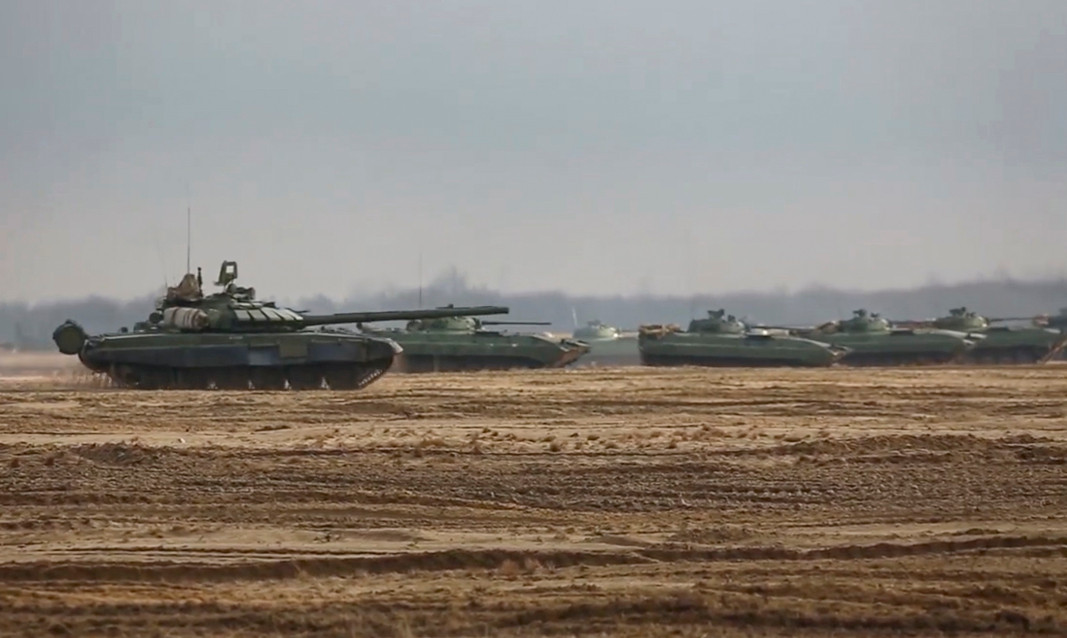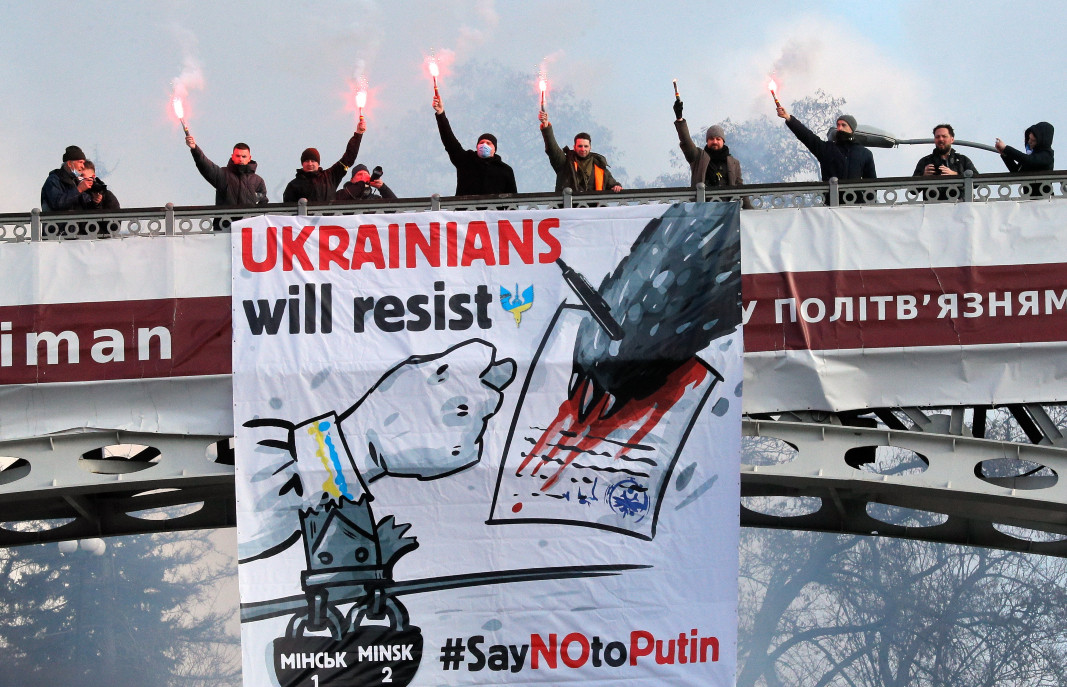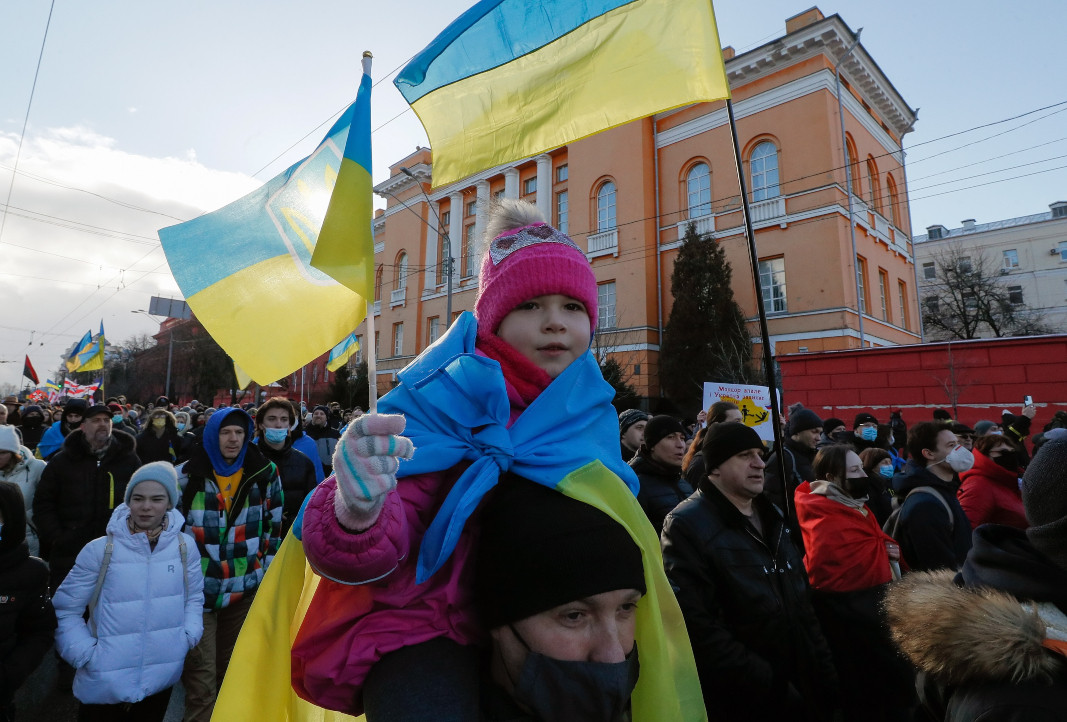Many countries, including Bulgaria, have called on their citizens to leave Ukraine. Prices of petroleum products and wheat have already jumped in line with unpredictable political tension escalation caused by fears of a possible Russian invasion in Ukraine, as the ghost of war has started hovering over our continent.
"Obviously, the tension in Ukraine has been growing. Sometimes the line separating propaganda and difficult decisions is very thin and the spark can be ignited easily,” Ivaylo Kalfin, who is Executive Director of the European Foundation for the Improvement of Living and Working Conditions, former Deputy Prime Minister, former Minister of Foreign Affairs and former Minister of Social Affairs, has told the BNR. "From a practical point of view, currently no one expects a full-scale war that could spread over the entire territory of Ukraine."

According to Kalfin, what we are currently witnessing is “building of positions.” This conflict is not new, but now it is entering a very hot phase and the question is how far it would go, Kalfin says and recalls:
"The conflict stems from the fact that Russia has been reacting extremely nervously for decades when it comes to NATO's expansion towards its borders. Many people remember 2008 when NATO said that Ukraine and Georgia could become its members; they remember the war in Georgia, in Eastern Ukraine, and so on. Russia has a problem when it comes to NATO expansion towards its borders. Now it feels strong enough, having significant revenues coming from oil and gas. Gazprom reducing gas supplies to Europe is also part of the tension as Russia wants to show Europe how important it is. However, the European market is much more important to Russia than Russian supplies to Europe. In general, the message of Russia is for stopping NATO expansion near its borders and the message of the United States and its partners is: ‘If you do something in Eastern Ukraine, then surely NATO will come to your borders with all its weapons.’”

The diplomat says that the EU has been very active in the dialogue with Russia through NATO.
Tensions related to Ukraine have provoked mixed reactions in Europe as worries and concerns have come to the forefront, BNR correspondent Angelina Piskova reports from Brussels. She quoted Guy Verhofstadt, a member of the executive board of the joint presidency of the Conference on the Future of Europe. The fourth panel of the conference on the EU role on the world stage has recently ended in Maastricht. "What is at stake is of extreme importance – this is peace or war on the European continent. We have not had a war on European soil for more than 7 decades. And I think we need to do everything we can to avoid it. Any effort in this direction is useful and necessary."

Bulgarians are divided in their expectations and opinions about the situation, but agree that the EU has not been effective in this case.
"I really hope there would be no war, because I don't know who could possibly benefit from it. A few days ago I watched an interview with Ukrainians and I was impressed that they do not feel the urgency of the problem, which is a hot topic in other countries,” Desislava Simeonova, who works in a clinical research company, says. “It seems that with the Covid crisis subsiding, Ukraine has become the next big topic. But I definitely do not think that the EU is effective in this situation. The bad thing is that the US are trying to get involved in everything."

The fears of construction technician Galya Zaharieva are greater:
"I am afraid there might be a war. The issue must be resolved peacefully! If there was a war, it would be a fratricidal war. They are too close, part of one nation lives in the other country and vice versa. It is similar to the Balkans.”
Financier Krassimir Zlatinov sees the problem mostly in the division of Europe and in "dependencies that cannot be ignored."
The crisis in Ukraine is of immediate importance for Bulgaria's national security, Minister of Foreign Affairs Teodora Genchovska said in an interview with Radio Bulgaria a few days ago. You can learn more about Bulgaria's position on tensions over Ukraine in the article: Foreign Minister Teodora Genchovska on the hot topics of Bulgaria’s foreign policy
Compiled by: Elena Karkalanova /based on interviews by Lora Tarkoleva, BNR - "Horizont" and Angelina Piskova, corr. of the Bulgarian National Radio in Brussels/
English: Alexander Markov
Photos: EPA/BGNESA new path ahead for the European Union – this is what the President of the European Commission Ursula von der Leyen outlined in her annual state of the union address in Strasbourg a few days ago. To summarize – the economic and military..
“We Continue the Change–Democratic Bulgaria” (PP-DB) has tabled a vote of no confidence against the government of Rosen Zhelyazkov in the “Justice and Internal Order” sector, BGNES reported. “We see not just a failure, but a systemic refusal..
In an article published by POLITICO , Sofia Mayor Vasil Terziev and Athens Mayor Haris Doukas called on European institutions to take a clear stance in defense of democracy in Turkiye, the Sofia Municipality press center reported. The..

+359 2 9336 661
